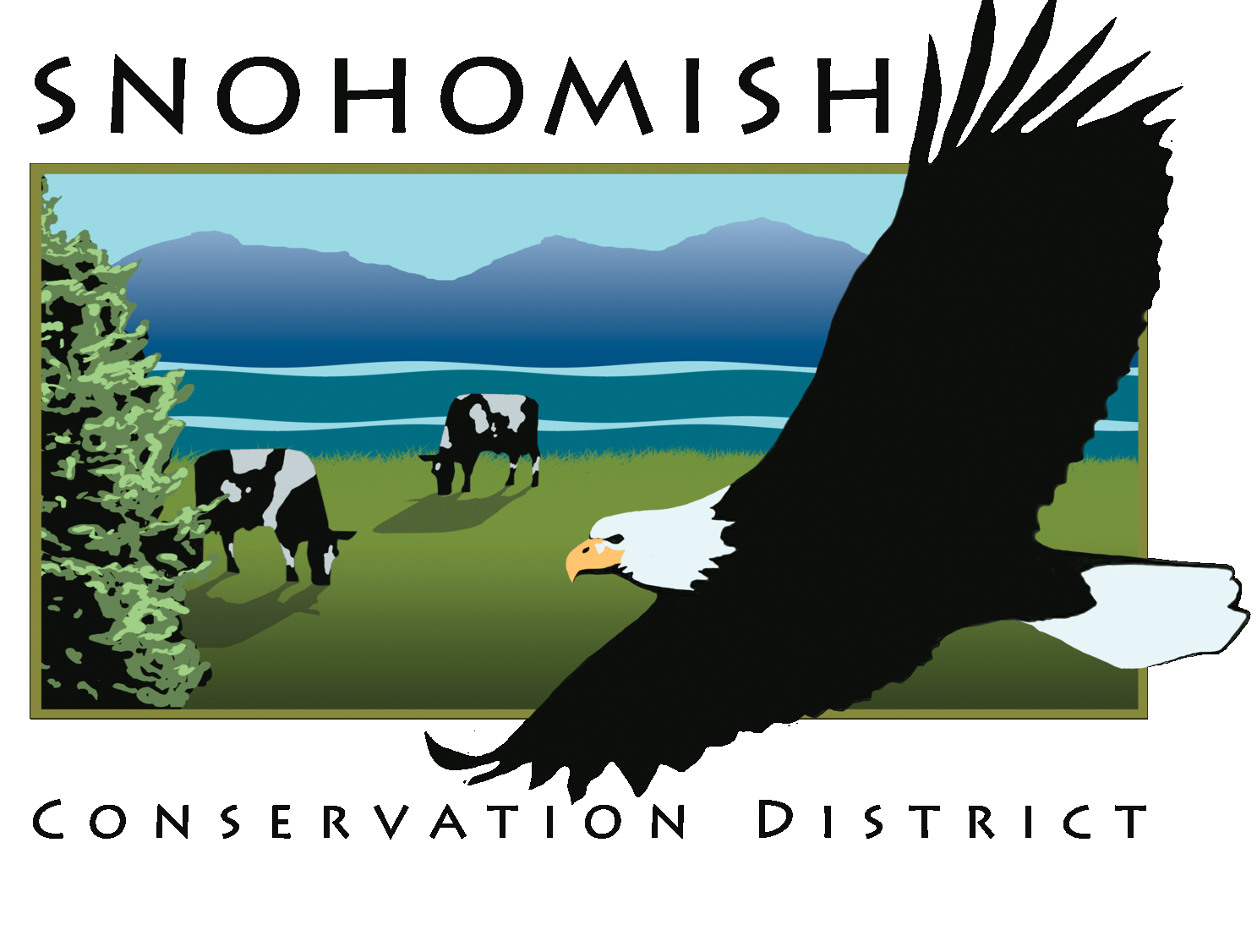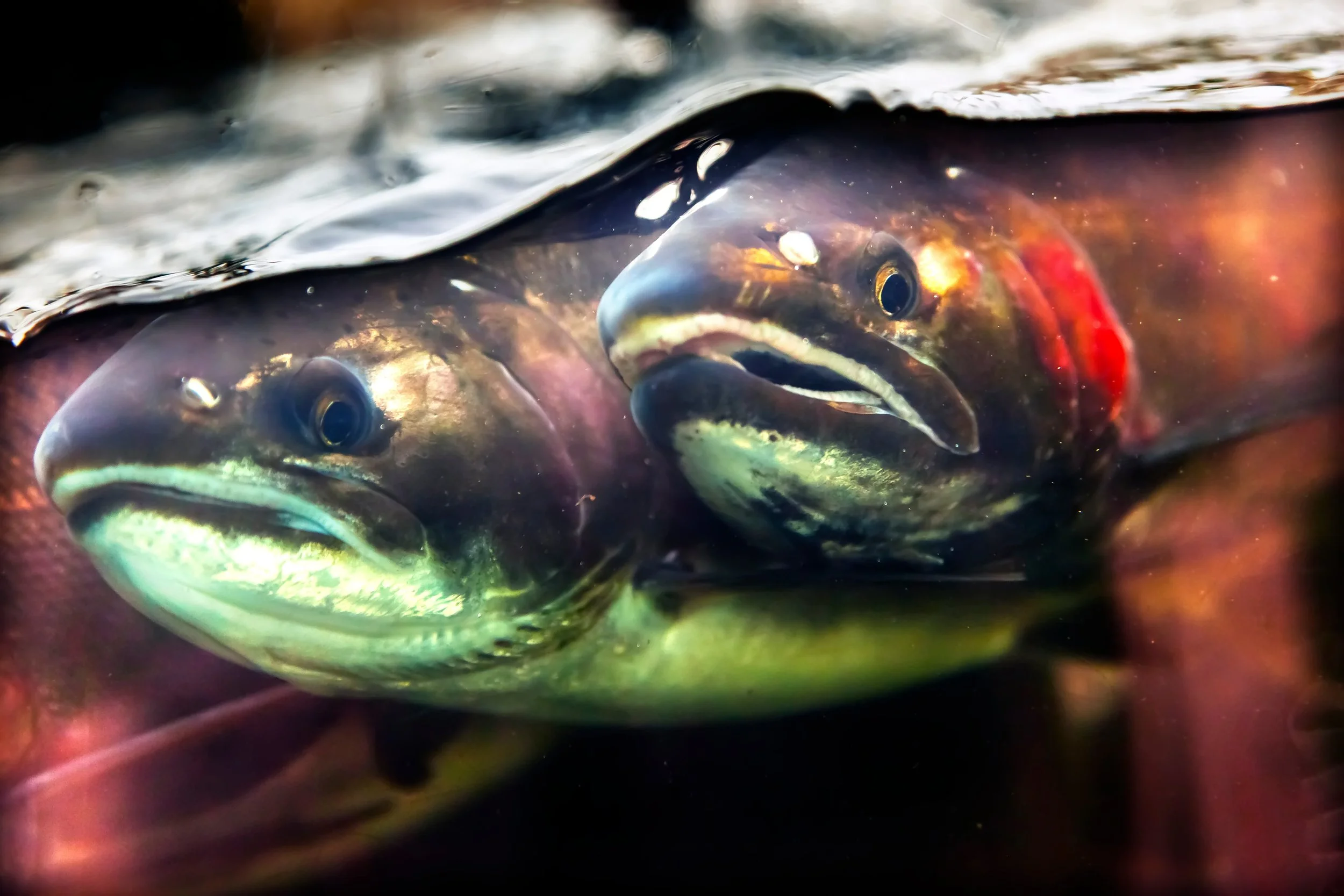NOAA funds Transformational Restoration for Chinook Recovery
/In April, National Oceanic and Atmospheric Administration (NOAA) Fisheries awarded $12.1 million to Washington Department of Fish and Wildlife (WDFW) and local partners to fund transformational Chinook recovery in the South Whidbey Basin Watershed. Snohomish Conservation District is excited to support this effort as a partner and subrecipient.
Whidbey Basin includes Whidbey and Camano Islands as well as the Snohomish, Stillaguamish, and Skagit Rivers, which are three of the largest salmon-producing rivers in Puget Sound. The Basin also contains nearly 70 percent of Puget Sound’s remaining tidal wetlands, which salmon and steelhead trout need for spawning and rearing habitat. The Transformational Chinook Recovery in South Whidbey Basin Watersheds grant award from NOAA will fund the restoration of 1,200 acres and support the development of projects for the future.
Chinook Salmon
Our Involvement
During this three-year award period, Snohomish Conservation District will implement the Skykomish Riparian Agroforestry feasibility project, advance the Swan’s Trail Slough multi-benefit project, and continue the Sustainable Lands Strategy’s efforts to increase collaboration among fish, farm, and flood management interests.
The Skykomish Riparian Agroforestry feasibility project will explore incorporating agroforestry elements into streamside restoration projects to develop biodiverse forests that benefit land stewards and communities.
The Swan’s Trail Slough project includes the development and completion of designs and possible implementation of construction activities that will restore up to 1.3 miles of channel and 10 to 35 acres of tidal wetland/slough habitat. This project will also improve agricultural drainage and flood protection for over 500 acres in Drainage Improvement District 13, located east of Everett.
This area supports several agricultural operations including hay and silage production, cattle and small livestock, vegetables, fruit, agritourism, and other enterprises. Since the Swan’s Trail Slough project is located upstream of and adjacent to Snohomish County’s Chinook Marsh Restoration Project, Snohomish Conservation District and Snohomish County will use NOAA funding to continue to explore opportunities to work together on these projects.
The Transformational Chinook Recovery in South Whidbey Basin Watershed grant was awarded in conjunction with a complementary grant focusing on North Whidbey Basin, combining to a total of $24 million in funding to support Chinook salmon habitat restoration throughout Whidbey Basin. These grants also benefit the endangered Southern Resident killer whales, since over 80 percent of their diet is Chinook salmon.
These grants will support projects that, according to Jay Krienitz from the Washington State Department of Ecology, “will restore habitat for salmon and create rivers and estuaries that are more resilient to floods in a changing climate. Nature-based solutions like the ones in [these projects] will support our local communities for generations.”


